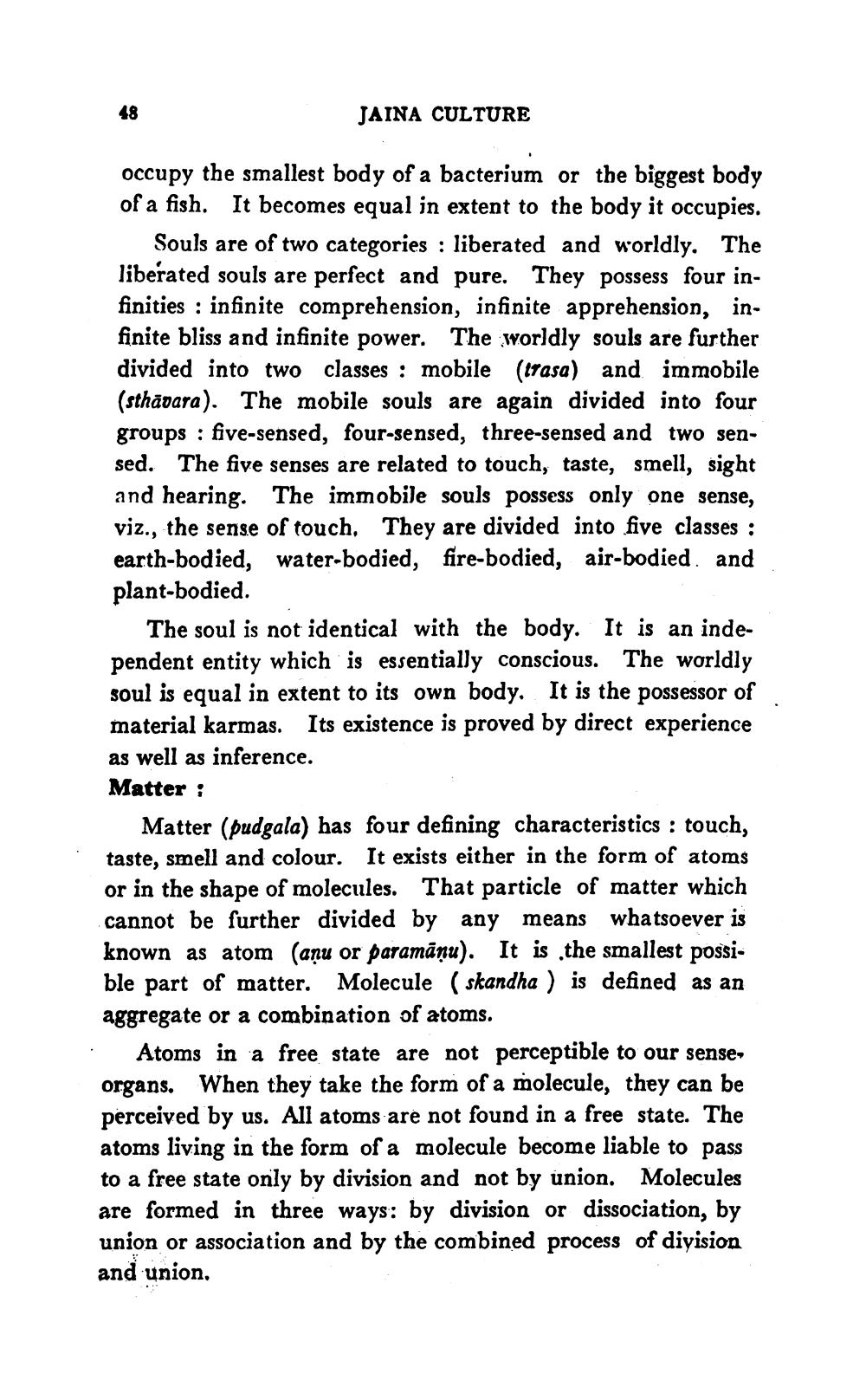________________
JAINA CULTURE
occupy the smallest body of a bacterium or the biggest body of a fish. It becomes equal in extent to the body it occupies.
Souls are of two categories : liberated and worldly. The liberated souls are perfect and pure. They possess four infinities : infinite comprehension, infinite apprehension, infinite bliss and infinite power. The worldly souls are further divided into two classes : mobile (trasa) and immobile (sthāvara). The mobile souls are again divided into four groups : five-sensed, four-sensed, three-sensed and two sensed. The five senses are related to touch, taste, smell, sight and hearing. The immobile souls possess only one sense, viz., the sense of touch. They are divided into five classes : earth-bodied, water-bodied, fire-bodied, air-bodied, and plant-bodied.
The soul is not identical with the body. It is an independent entity which is essentially conscious. The worldly soul is equal in extent to its own body. It is the possessor of material karmas. Its existence is proved by direct experience as well as inference. Matter :
Matter (pudgala) has four defining characteristics : touch, taste, smell and colour. It exists either in the form of atoms or in the shape of molecules. That particle of matter which cannot be further divided by any means whatsoever is known as atom (aņu or paramānu). It is .the smallest possible part of matter. Molecule ( skandha ) is defined as an aggregate or a combination of atoms. • Atoms in a free state are not perceptible to our sense,
organs. When they take the form of a molecule, they can be perceived by us. All atoms are not found in a free state. The atoms living in the form of a molecule become liable to pass to a free state only by division and not by union. Molecules are formed in three ways: by division or dissociation, by union or association and by the combined process of diyision and union.




